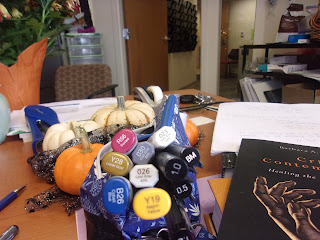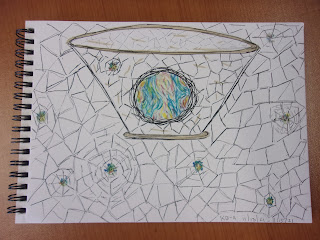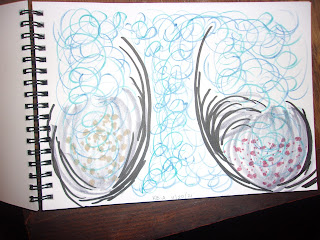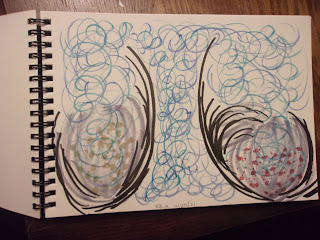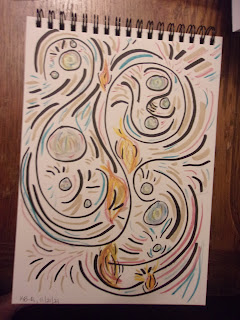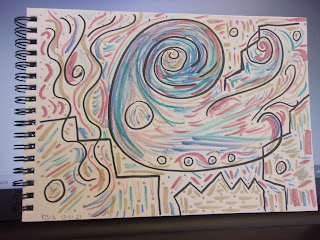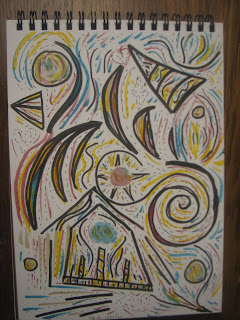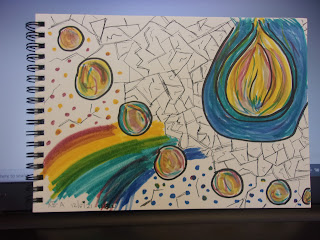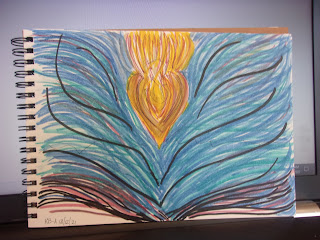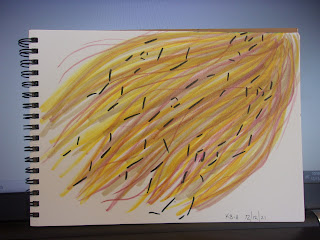I woke up yesterday morning stiff and sore--I spent much of December 24 on my feet, in well-cushioned shoes mind you, but still, I woke up feeling sore from my midsection down. So, I decided to go for a walk. I knew it would be a slow walk, but it would be good to get the sore body parts moving.
It was 6:15, still dark, not many people out and about. I walked past a car stopped at a red light with windows down, and a male voice asked me "Hey momma, what's happening?"
I said, "Merry Christmas!"
The male voice said, "We got weed." I kept walking, and the man called out, "Wanna buy some weed?" The car pulled away, as I was saying, "No thank you."
In what universe do I look like I want to buy some weed from male strangers in a car? My poetry brain immediately came up with a first line:
Do I look like the kind of woman who would buy weed from strangers in a car?
I thought about subsequent lines taking off parts of that line:
Do I look like the kind of woman who would buy weed from strangers?
Do I look like the kind of woman who would buy weed?
Do I look like the kind of woman who would?
Do I look like the kind of woman?
Do I look like the kind?
Do I look?
It's not an experiment worth sending out to poetry journals, but my brain enjoyed the exercise. It may lead to a more substantial poem, so it seems worth recording the experiment here.
The basic question remains: was I moving so slowly that I didn't look like a woman out for exercise? Did my raggedy work out clothes make me look homeless or like a prostitute? Were the men so stoned that they asked everyone that question?
I continued to walk, saying "Merry Christmas" to the occasional person I passed. Some said it back. One jogger removed his ear bud and said, "What?" I repeated "Merry Christmas!" and he nodded and jogged along.
A flock of birds with curved beaks landed on the shore of the neighborhood lake, and when I whispered "Merry Christmas," they didn't fly away. We stared at each other for a few minutes, and then I moved along, and they resumed their hunt for breakfast.
When I got back to my condo building, I said, "Merry Christmas" to the guard at the desk. She said, "I don't celebrate. It's Saturday." I said, "Happy Winter Holidays." That should cover it, right?
She said, "No. It's happy Saturday." So I said, "Happy Saturday," and she said it back.
We had a quiet Christmas morning after that, sorting and organizing and doing the end of the semester cleaning before the arrival of my mom and dad, whose flight we tracked. When I picked them up at the airport, we said "Merry Christmas" to each other, and the day felt complete.
I do understand that not everyone celebrates the holiday. To me, it's one of those holidays, like Valentine's Day, that has its roots as a religious holiday, but now is somewhat secular. I realize that Christmas may seem more religious than Valentine's Day, but in some ways, it's also more secular than Valentine's Day: stores close, banks close, the world shuts down for a bit.
And the real reason that I still go out in the world early in the morning saying "Merry Christmas" is that my dad and I used to take a Christmas afternoon run, and we'd holler greetings to everyone we saw. It was the early 80's, before we realized that not everyone might celebrate, when we didn't consider that a "Merry Christmas" might be a source of pain.
We are more enlightened now, but alas, based on yesterday, it doesn't seem to have led to us being more loving or even civil. And I am awakening to news of the death of Archbishop Tutu, which doesn't seem to bode well in a world that needs more leaders like him. I'll likely write more about him tomorrow. I saw him speak once, about 10 years ago, and it was one of the more profound evenings of my life.







